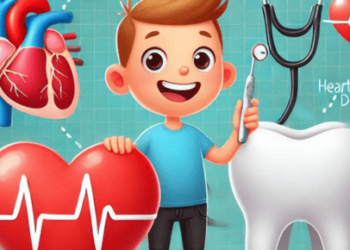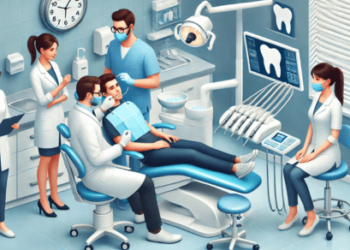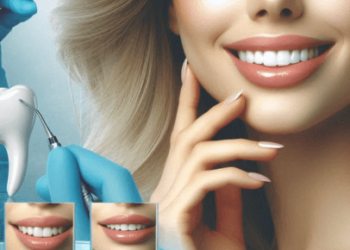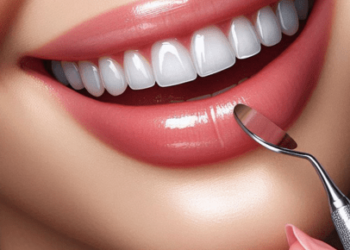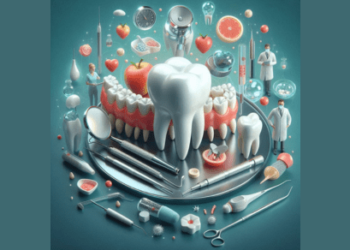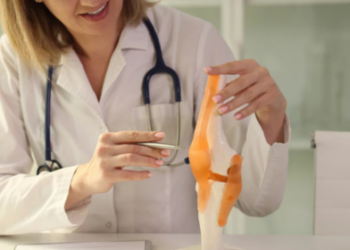Periodontal disease, a chronic bacterial infection affecting the gums and bone supporting the teeth, is a pervasive oral health issue that can have far-reaching consequences if left untreated. As a trusted dentist in Richmond IN, our team is dedicated to providing comprehensive care and education to help patients prevent, diagnose, and treat periodontal disease. Through a combination of visual examinations, periodontal probing, radiographs, and bite analysis, our experienced dental team can accurately diagnose periodontal disease and develop a personalized treatment plan to prevent its progression and mitigate potential complications, such as tooth loss, bone loss, and systemic health problems.
In this article, we will discuss the diagnostic methods for periodontal disease, its potential complications, and the importance of seeking timely treatment.
What Are The Diagnostic Methods for Periodontal Disease?
Diagnosing periodontal disease requires a comprehensive evaluation of the teeth, gums, and surrounding tissues. The following diagnostic methods are commonly used:
- Visual Examination: A visual examination of the teeth, gums, and surrounding tissues to look for signs of inflammation, bleeding, or recession.
- Periodontal Probing: A periodontal probe is used to measure the depth of the periodontal pocket, which is the space between the tooth and the gum.
- Radiographs (X-rays): Radiographs are taken to evaluate the extent of bone loss and the presence of any other oral health problems.
- Bite Analysis: A bite analysis is performed to evaluate the alignment of the teeth and the presence of any bite problems.
- Gum Recession Measurement: The extent of gum recession is measured to assess the severity of periodontal disease.
- Bleeding on Probing (BOP): The presence or absence of bleeding on probing is used to assess the severity of periodontal disease.
- Microbiological Testing: Microbiological testing may be performed to identify the presence of specific bacteria that are associated with periodontal disease.
- Periodontal Screening: A periodontal screening is a brief examination that is used to assess the overall health of the periodontal tissues.
What Are The Potential Complications of Untreated Periodontal Disease?
Untreated periodontal disease can lead to various complications, including:
- Tooth Loss: Advanced periodontal disease can cause the teeth to become loose and eventually fall out.
- Bone Loss: Periodontal disease can cause the bone supporting the teeth to deteriorate, leading to a decrease in the density and height of the bone.
- Systemic Health Problems: Research has shown that there is a link between periodontal disease and various systemic health problems, including:
- Heart disease
- Diabetes
- Respiratory infections
- Osteoporosis
- Alzheimer’s disease
- Bad Breath and Taste: Periodontal disease can cause bad breath and a bad taste in the mouth due to the accumulation of bacteria and debris.
- Gum Recession: Periodontal disease can cause the gums to recede, exposing the roots of the teeth and making them more susceptible to decay and sensitivity.
- Abscesses: Periodontal disease can cause abscesses to form in the gums, which can be painful and potentially lead to more serious complications.
- Malocclusion: Advanced periodontal disease can cause the teeth to shift and become misaligned, leading to malocclusion and potentially affecting the overall health of the jaw joint.
- Nutritional Deficiencies: Periodontal disease can make it difficult to eat and digest certain foods, potentially leading to nutritional deficiencies.
- Social and Emotional Impacts: Periodontal disease can have significant social and emotional impacts, including low self-esteem, anxiety, and depression.
- Increased Risk of Premature Birth: Research has shown that pregnant women with periodontal disease are at a higher risk of premature birth.
By understanding the diagnostic methods, potential complications, and treatment options for periodontal disease, individuals can take proactive steps to protect their oral health and prevent the development of this debilitating disease. Regular dental check-ups, good oral hygiene practices, and a balanced diet can all play a critical role in maintaining good oral health and preventing periodontal disease.

